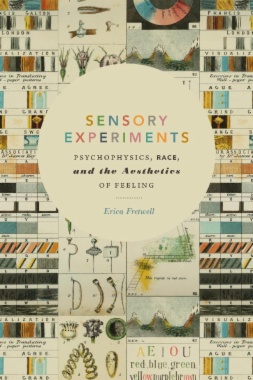In Sensory Experiments, Erica Fretwell excavates the nineteenth-century science of psychophysics and its theorizations of sensation to examine the cultural and aesthetic landscape of feeling in nineteenth-century America. Fretwell demonstrates how psychophysics—a scientific movement originating in Germany and dedicated to the empirical study of sensory experience—shifted the understandings of feeling from the epistemology of sentiment to the phenomenological terrain of lived experience. Through analyses of medical case studies, spirit photographs, perfumes, music theory, recipes, and the work of canonical figures ranging from Kate Chopin and Pauline Hopkins to James Weldon Johnson and Emily Dickinson, Fretwell outlines how the five senses became important elements in the biopolitical work of constructing human difference along the lines of race, gender, and ability. In its entanglement with social difference, psychophysics contributed to the racialization of aesthetics while sketching out possibilities for alternate modes of being over and against the figure of the bourgeois liberal individual. Although psychophysics has largely been forgotten, Fretwell demonstrates that its importance to shaping social order through scientific notions of sensation is central to contemporary theories of new materialism, posthumanism, aesthetics, and affect theory.
- Cover
- Contents
- Acknowledgments����������������������
- Introduction: New Sensation
- { 1 } Sight: Unreconstructed Body Images
- Interval 1. Colorful Sounds
- { 2 } Sound: The Acoustics of Social Harmony
- Interval 2. Notes on Scent
- { 3 } Smell: Perfume, Women, and Other Volatile Spirits
- Interval 3. Olfactory Gusto
- { 4 } Taste: Scripts for Sweetness, Measures of Pleasure
- { 5 } Touch: Life Writing Between Skin and Flesh
- Coda: Afterlives and Antelives of Feeling
- Notes������������
- Bibliography�������������������
- Index������������
- A
- B
- C
- D
- E
- F
- G
- H
- I
- J
- K
- L
- M
- N
- O
- P
- Q
- R
- S
- T
- U
- V
- W
- Y
- Z

